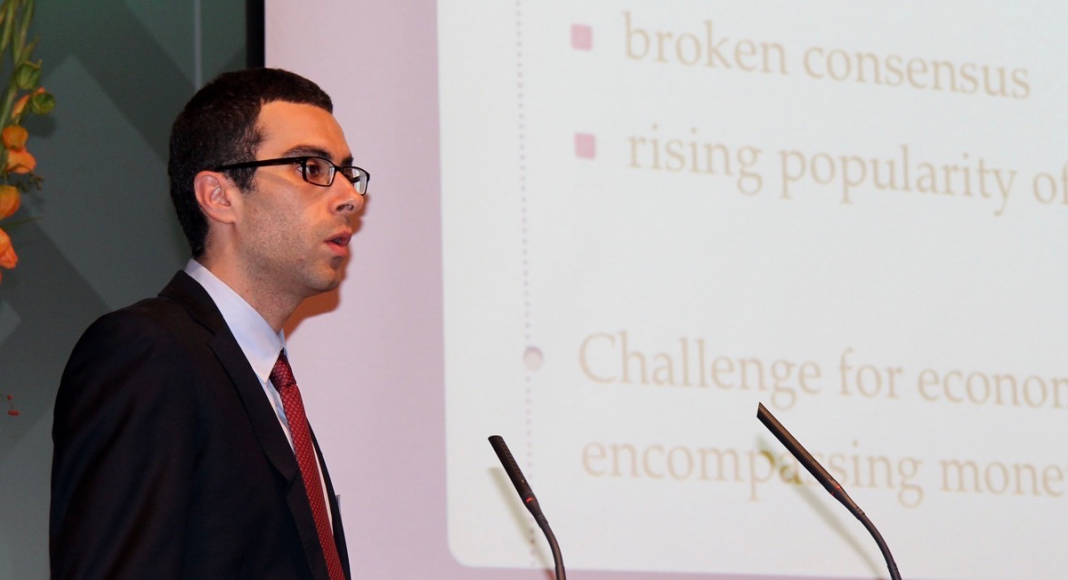Matteo Maggiori eulogizes Harvard economist Emmanuel Farhi, who passed away last month at the age of 41.
Emmanuel Farhi, one of the great minds of contemporary economic thought, died prematurely at the end of July, just over a month ago. A brilliant French economist and professor at Harvard, he died in Boston at the age of 41. He contributed in a fundamental way to the development of Keynesian macroeconomic theory, financial instability and macroprudential policies, and to the analysis of the international monetary system.
As a student and co-author of Nobel laureate Jean Tirole, Emmanuel analyzed the distortions in the banking system that lead banks to assume excessive and interrelated risks: a research topic that became central with the financial crisis of 2008 and the bank bailout policies.
Motivated by the 2011-12 sovereign debt crisis in Europe, Emmanuel developed an analysis with Iván Werning on macroprudential policy inside and outside monetary unions. At the center of the analysis they placed a demand externality in the Keynesian tradition. If prices and wages are too high in Italy compared to Germany, in the absence of an exchange rate depreciation, Italy suffers a recession. Individual production and consumption choices are not socially optimal because they do not internalize that the expenditure of each individual contributes to creating demand and work for others. Fiscal transfers between the countries of the union are optimal; a fiscal as well as a monetary union. Emmanuel’s analysis preceded the policies adopted by the Eurozone in the Covid crisis.
With Ricardo Caballero and Pierre-Olivier Gourinchas, Emmanuel contributed to the study of global imbalances with the emergence of China and the deterioration of the US balance of payments. These are important issues for US economic policy, linked to the hypothesis by Ben Bernanke, former Chair of the Federal Reserve, that these imbalances induce very low interest rates in the United States.
Emmanuel and I met in 2012, when I had just finished my doctorate. We then became co-authors and colleagues. Together, we wrote a theory of the international monetary system. I have beautiful memories of our long walks absorbed in conversations about which model was the right one. We were thinking of the risks of growing American debt: risks that are not immediate, indeed often ignored, but fundamental for the long term. It is hard for me to accept that Emmanuel won’t be there in the long run.
Emmanuel researched what he thought was the best, not what was necessarily popular at the moment. He recently started a new agenda on the foundations of aggregate production with his former student, David Baqaee. He was excited about this new research avenue.
Although he lived in Boston for many years, he remained deeply French and European. He had studied the imperfections of the Eurozone and designed policies to improve it. French President Macron recently recognized Emmanuel’s contribution to his policy agenda.
He was a Renaissance man with interests in the arts, literature, and food. One of our last conversations was about a search for good books on Alessandro Farnese, later Pope Paul III. He leaves a beloved mother and an Italian partner, Micol, to whom I extend all my affection. I had always known that one day I would have to write an article on Emmanuel Farhi’s great contributions, I never wanted it to be an article in memoriam.
Editor’s note: This piece originally appeared in Italian in Il Sole 24 Ore.






